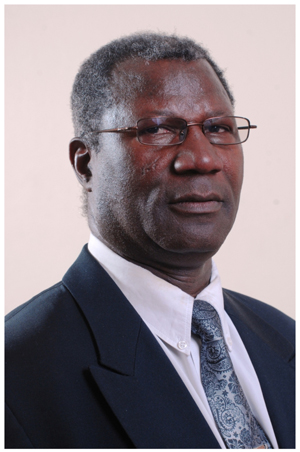Prof. Moses Amweelo
The Conference of the Parties (COP26) United Nations climate change conference, which was set to take place in Glasgow, Scotland in November 2020 has been postponed due to Covid-19. The bureau of the Conference of the Parties to the United Nations Framework Convention on Climate Change (UNFCCC) with the UK and its Italian partners, agreed the new dates for the COP26 UN climate conference, which will now take place between 1 and 12 November 2021 in Glasgow.
The eleven members of the bureau are nominated by each of the five United Nations regional groups and small island developing states, and provide advice and guidance regarding the ongoing work under the convention, the Kyoto Protocol, and the Paris agreement, the organisation of their sessions and the relevant support by the UN climate change secretariat.
UN climate change executive secretary Patricia Espinosa said: “Our efforts to address climate change and Covid-19 are not mutually exclusive. If done right, the recovery from Covid-19 crisis can steer us to a more inclusive and sustainable climate path. We honour those whom we have lost by working with renewed commitment and continuing to demonstrate leadership and determination in addressing climate change, and building a safe, clean, just and resilient world.”
With 197 Parties, the United Nations Framework Convention on Climate Change (UNFCCC) has near-universal membership and is the parent treaty of the 2015 Paris climate change agreement.
The main aim of the Paris agreement is to keep a global average temperature rise this century well below 2 degrees Celsius and to drive efforts to limit the temperature increase even further to 1.5 degree Celsius above pre-industrial levels.
The UNFCCC is also the parent treaty of the 1997 Kyoto Protocol. The ultimate objective of all agreements under the UNFCCC is to stabilise greenhouse gas concentrations in the atmosphere at a level that will prevent dangerous anthropogenic interference with the climate system, in a time frame which allows ecosystems to adapt naturally and enables sustainable development.
At COP25, African countries have called on developed countries to take robust action and implementation to close the ambition gap of both cutting emissions and climate finance which they promised to do by 2020, under the Kyoto Protocol.
The gap in mobilising and dispersing US$100 billion a year by 2020 is a crucial concern on African countries. African nations have called on developed nations to deliver their obligation of climate finance to facilitate the implementation of more ambitious action in vulnerable countries.
The year 2020 should be the year developed countries to lead by example for the effective implementation of the Paris agreement. Conference of the Parties (COP26) should be about implementation, not just about ambitious pledges.
The UN summit in Glasgow will be the last mile before the initiation of the implementation of the Paris agreement in November 2021. The missing pieces for its effective implementation need to be completed at COP 26.
These include the rules to operationalise the global goal on adaptation and agreeing on common rules for a new carbon market, also known as article 6, that can contribute to real emissions reductions and help finance adaptation in African countries. Africa, a continent covering 54 countries, contributes only 4% of the total global emissions.
But according to the Intergovernmental Panel on Climate change (IPCC), Africa will also suffer some of the most adverse climate impacts. African countries have already come to the table with ambitious climate plans, also called Nationally Determined Contribution (NDCs), under the Paris agreement.
At the Libreville meeting, the African group will aim to reach a common position and strategy for inter-sessional UN talks in Bonn in June, and decide its priorities for COP 26 in November 2021.
The meeting also aims to adopt a common strategy over how to engage with others with like-minded regions and countries, to ensure that African priorities are considered during this year’s talk.
COP 26 President and Secretary of State for the Department of Business, Energy and Industrial Strategy, Alok Sharma, said: ‘’While we rightly focus on fighting the immediate crisis of the coronavirus, we must not lose sight of the huge challenges of climate change. With the new dates for COP 26 now agreed we are working with our international partners on an ambitious roadmap for global climate action between now and November 2021. The steps we take to rebuild our economies will have a profound impact on our societies’ future sustainability, resilience and wellbeing and COP 26 can be a moment where the world unites behind a clean resilient recovery.’’
This conference is the first time that Parties are expected to commit to enhanced ambition since COP 21. Parties are required to carry out every five years, as outlined in the Paris agreement, a process colloquially known as the ‘ratchet mechanism’.
Finally, we’ll hope COP 26 summit will bring parties together to accelerate action towards the goals of the Paris agreement and the UN Framework Convention on Climate Change in November 2021.


